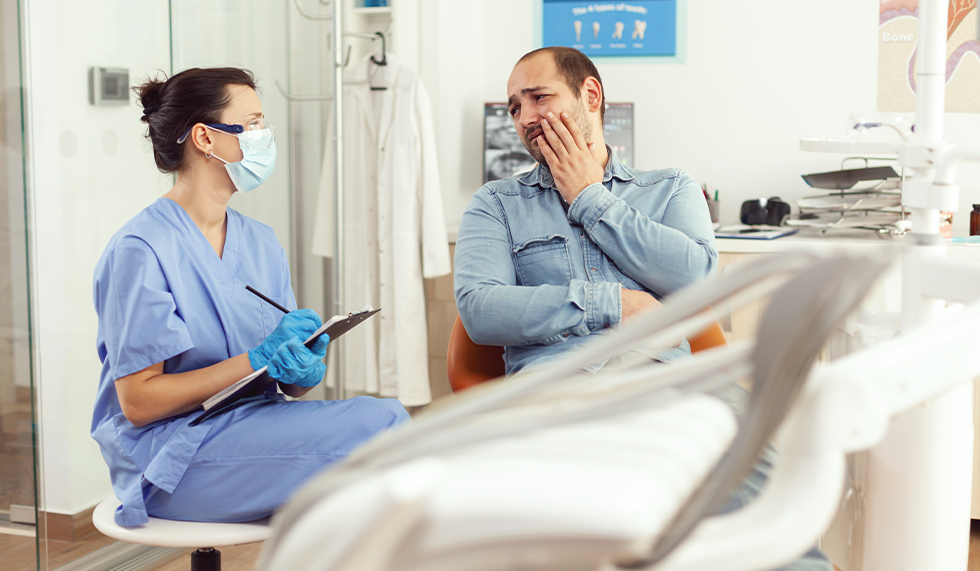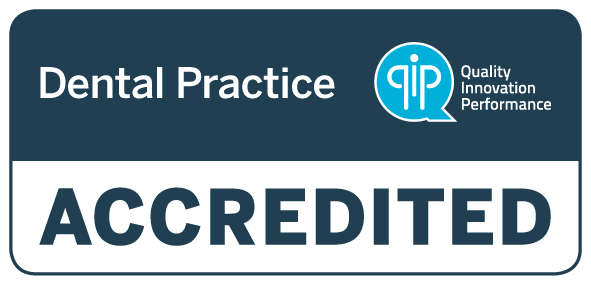Dental emergencies can strike when you least expect them, causing pain, stress, and uncertainty about what to do next. Whether it’s a sudden toothache, a broken tooth, knowing how to respond can make a significant difference in the outcome. Quick and informed action can alleviate discomfort, prevent further damage, and even save a tooth. In this comprehensive guide, we’ll explore the most common types of dental emergencies, offer step-by-step instructions for immediate care, and provide guidance on when to seek professional help.
Common Types of Dental Emergencies
Dental emergencies come in many forms, and recognising the type of issue you’re facing can help you decide how to proceed. Below are some of the most common dental emergencies that people encounter:
1. Broken or Chipped Tooth
A broken or chipped tooth is a common occurrence, often caused by biting down on something hard, sports injuries, or accidents. The severity of the break can range from a small chip to a major fracture. In some cases, the broken piece may expose the inner layers of the tooth, leading to increased sensitivity or pain.
While small chips might not cause immediate discomfort, larger breaks can result in pain and swelling, especially if the damage reaches the nerve. Regardless of the size of the break, it’s important to see a dentist to avoid potential complications like infection.
2. Toothache
A toothache can range from mild discomfort to excruciating pain, and it can have a variety of causes such as cavities, infections, gum disease, wisdom teeth or trauma. Sometimes, a toothache can be a sign of a more serious issue like an abscess, which is an infection that can spread if left untreated. Toothaches may also be accompanied by swelling, fever, or a foul taste in the mouth, which can indicate infection.
Persistent tooth pain should never be ignored, as it may worsen over time and lead to more serious complications. Addressing the pain early on can prevent a minor issue from developing into a full-blown dental emergency.
3. Facial Swelling
Please schedule an appointment with your dentist immediately if you have facial swelling as it could be something serious
First Steps to Take in a Dental Emergency
When a dental emergency occurs, knowing what to do can make a big difference in the outcome. Here are some important first steps for different emergencies:
1. Broken or Chipped Tooth
Rinse your mouth with warm salt water to clean the area. See your dentist as soon as possible.
2. Toothache
To relieve toothache pain, rinse your mouth with warm water and use dental floss to remove any food particles that may be stuck between teeth. Avoid placing aspirin or other pain relievers directly on the gums, as this can burn the tissue. You may use over-the-counter pain medication and schedule an appointment with your dentist to sort out the cause.
3. Facial Swelling
take pain relief if necessary. Place a warm face washer on your face to help drain Rinse your mouth with warm salt water, don’t ignore facial swelling. Please schedule an appointment with your dentist immediately.
When to See a Dentist
Not all dental problems require an emergency dentist, but certain situations should never be delayed. Here’s a guide to help you determine when to seek immediate care:
- Severe Pain: If your toothache is persistent and severe, especially if accompanied by swelling, fever, or a foul taste in your mouth, you should contact an emergency dentist immediately.
- Knocked-Out Tooth: A tooth that has been knocked out needs urgent care within 30 minutes for the best chance of saving the tooth.
- Chipped or Broken Tooth: If the break is severe, or if the tooth is painful or bleeding, don’t wait to see a dentist.
- Facial swelling: any type of facial swelling, next to a tooth or in the cheek, palate, under your tongue or the floor of the mouth
- Abscess: Swelling, pain, and fever associated with an abscess require immediate dental attention to prevent the spread of infection.
- Lost Filling or Crown: While not always an emergency, seeing a dentist promptly will prevent further damage to the tooth and alleviate discomfort.
- Ulcer: any ulcer or sore in the mouth or tongue, whether it is swollen and has not healed after 4 weeks
If you’re unsure whether your situation requires emergency dental care, it’s always safer to contact a dental professional for advice.
How to Prevent Future Dental Emergencies
While some dental emergencies are unavoidable, many can be prevented with proper care and precautionary measures. Here are some tips to help you avoid dental emergencies:
1. Maintain Good Oral Hygiene
Brushing twice a day, flossing daily, and seeing your dentist for regular check-ups can help prevent cavities, gum disease, and other oral health problems that could lead to emergencies.
2. Use Mouthguards
If you play contact sports or grind your teeth at night, wearing a mouthguard can protect your teeth from injury and damage. Custom-fitted mouthguards offer the best protection and comfort.
3. Avoid Hard Foods
Chewing on hard foods like ice, popcorn kernels, or hard candy can lead to cracked or broken teeth. Avoid using your teeth as tools to open packages or bottles, as this can also cause damage.
4. Address Dental Issues Early
Don’t ignore dental problems like tooth pain, gum swelling, or loose fillings. Catching issues early can prevent them from becoming emergencies later on.
Finding an Emergency Dentist Near You
When a dental emergency strikes, knowing where to turn for help is crucial. If you live in Brighton-Le-Sands or the surrounding areas, finding a reliable emergency dentist is essential. At Family Dental Practice, we offer prompt and compassionate care for a wide range of dental emergencies.
Here are some tips for finding an emergency dentist near you:
- Research Local Dentists: Look for a dentist in your area who offers emergency services. At Family Dental Practice, we provide immediate care for patients with urgent dental issues, ensuring quick relief and professional treatment.
- Check Availability: Make sure the dentist offers after-hours or weekend services in case your emergency occurs outside of regular business hours.
- Contact Your Dentist: If you’re unsure where to go during a dental emergency, call your regular dentist for advice. Many dental practices, like ours, offer emergency services and can guide you on the next steps to take.
Conclusion
Dental emergencies can be stressful and painful, but knowing how to handle them can make all the difference. By following the steps outlined in this guide, you can take quick action to protect your oral health and minimise damage. Whether it’s a knocked-out tooth or a sudden toothache, it’s important to seek professional care from an emergency dentist as soon as possible. Remember, at Family Dental Practice, we’re here to provide fast, effective dental care when you need it most. Keep this guide handy, and you’ll be prepared to take swift action during any dental emergency!


